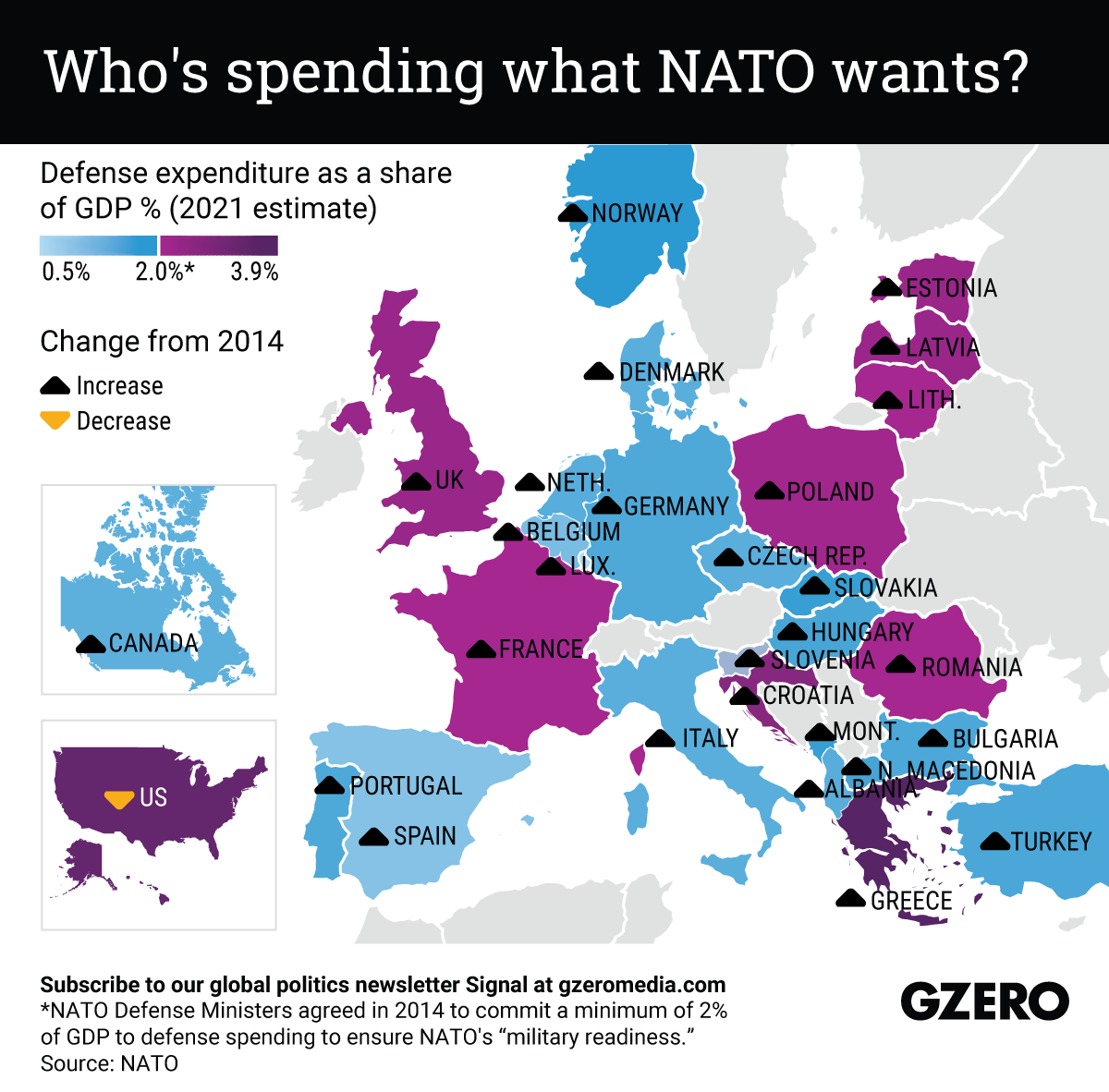June 14, 2021
In 2017, then-US President Trump rallied against NATO, complaining that European member states weren't pulling their weight to bolster the alliance, whose cornerstone is that an attack on one member is considered an attack on all. NATO was formed in the wake of World War II as a counterweight against Soviet dominance in Europe and beyond. But this week, when US President Biden met fellow NATO members in the UK, the emphasis was on how to adapt the alliance to counter China's increasing belligerence. Indeed, disagreements over sharing the cost of maintaining military readiness have caused frictions in recent years, and as a result, the bloc agreed that all member states would spend at least 2 percent of GDP on defense by 2024. So, how are they tracking? Here's a look at who pays what.
From Your Site Articles
More For You
Think you know what's going on around the world? Here's your chance to prove it.
Most Popular
Donald Trump alongside Nigel Farage amid a television interview at his Trump Turnberry course in South Ayrshire during his visit to the United Kingdom, on May 3, 2023.
PA via Reuters
The US government will reportedly fund MAGA-aligned parties and think tanks in Europe. But with US President Donald Trump’s favorability in Europe so low, do they even want the money?
- YouTube
Zelensky agrees: elections matter #PUPPETREGIME
As more small businesses move sales, payments, and customer relationships online, they unlock new opportunities, but they also become easier targets for cyber-criminals and other threat actors.
© 2025 GZERO Media. All Rights Reserved | A Eurasia Group media company.
